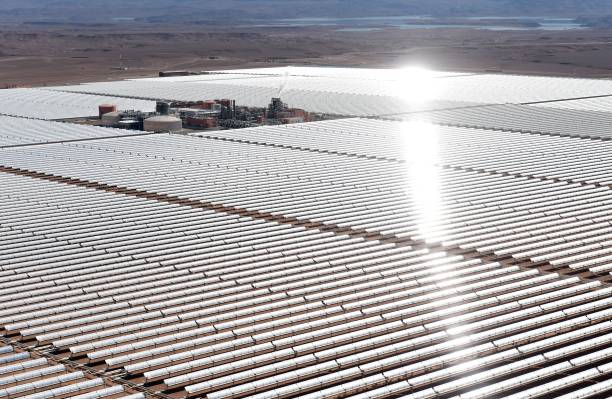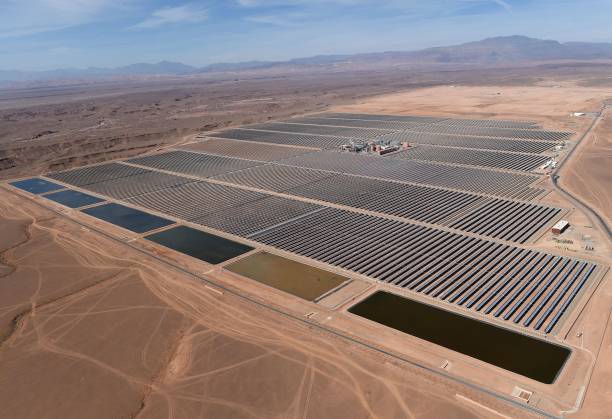Morocco’s Green Data Vision: Powering Sovereignty Through Wind, Sun, and Strategy

Two thousand years ago, the sahara winds carved dunes shaped like living waves. Today, those same winds are being harnessed in Dakhla, under the gaze of digital platforms and renewable turbines. Morocco’s announcement to build a 500‑megawatt data centre powered entirely by green energy is more than a tech project—it is a statement of intention. It says: we can build digital infrastructure sustainably. Not as observers on a cold planet, but as architects of a climate‑smart future.
At the heart of Morocco’s Digital Morocco 2030 roadmap is an insistence on sovereignty—not only over data but over how that data lives, travels, and reflects national values. The wind‑blessed city of Dakhla, located on the edge of the Western Sahara, is emerging as the stage for this ambition. It’s no accident: its consistent coastal trade winds make it ideal for solar and wind energy farms. In a nation where around 13 percent of electricity already stems from wind, the leap to powering data centres through renewables feels both natural and strategic.
Where Data Meets Climate
Morocco has invested billions in solar technology, notably in its Ouarzazate solar complex, which stands among the world’s largest. This has built deep expertise in harnessing desert light to power cities. Extending that logic to data infrastructure is strategic: the same circuits that process code can drive turbines. The planned Dakhla hub, although still in early development stages, is being touted as a first step in a broader network of government‑run data sites that prioritize clean energy and national control over digital flows.

SOURCE: gettyimages
The decision to locate the centre where its only power sources will be sun and turbine—not diesel or imported electricity—speaks to long‑term planning. Enduring energy reliability in Africa still faces challenges. Outages disrupt businesses and education. By tying data flow to renewable generation, Morocco aims to safeguard against those vulnerabilities.
Strategy Beyond Servers
Morocco’s digital push extends beyond data centre construction. Under ongoing infrastructure plans, the country is investing in fibre‑optic expansion, AI labs, and education hubs to train local engineers. A recent signalling of nearly 11 billion dirham in investments by 2026 reflects a conviction that digital sovereignty requires more than server farms—it needs networks, people, and policy aligned.
Critically, the Dakhla facility is owned and operated by the state. This means data belonging to national agencies, law firms, and healthcare systems can remain under local jurisdiction. It is a soft rebuke to those cloud models where Africa’s information is stored and managed offshore, often under unfamiliar legal regimes.
Morocco is positioning itself not just as a user of global tech infrastructure, but as a regional hub. If successful, that hub might serve countries across West Africa, offering a sovereign alternative to foreign cloud providers and elevating Morocco’s geopolitical relevance.
Echoes in the Sand: Past and Present
It’s worth remembering: Morocco is not entering unknown territory. Colonial erasonce wrested control of land and water from indigenous communities. Forests were fenced as if nature were property—keeping out the very people who had coexisted with their ecosystems for centuries. Now, decades later, a new governance project is underway—not of accumulation, but of stewardship that commands respect.
Embedding engineering in a green vision is also an act of narrative: it frames Morocco as forward‑looking, but also sustainable. The drama of turbines slicing through sunset dunes is intended to show that modern infrastructure need not erase natural beauty—it can rise alongside it.
Technology That Listens to the Land
SOURCE: gettyimages
In the world of renewable data infrastructure, efficiency is king. But in Africa, designers also ask: Does this infrastructure adapt to local ecosystems? Data centres need cooling. In Dakhla, ocean breezes help regulate temperature naturally, reducing the need for energy‑hungry air conditioning. Installer materials are chosen for durability in salt‑laden air, and layouts respect local habitats.
Local engineers are being empowered to build, maintain, and even repair data systems. Morocco has launched training programmes tied to the centre’s facility planning. Rather than importing technical teams, officials emphasize skills transfer—an acknowledgment that building sovereignty depends on human capacity, not just hardware.
What Remains Unsaid
Details are still emerging. There is no published timeline for construction. No formal budget breakdown. And no clear commitment on local job quotas or procurement from Moroccan SMEs. Will the turbines and servers be built locally or imported? At what cost will land be acquired—especially in politically sensitive Western Sahara areas? Will local communities be consulted, or simply bypassed?
These questions matter. If Morocco is to model transparent, inclusive development, these gaps must be addressed. Otherwise, Dakhla risks becoming a green spectacle—with benefits flowing outward, not inward.
Words of Transition, Not Tension
There is opportunity for regional synergy. Should the Dakhla data hub succeed, it opens possibilities for West African nations to share infrastructure—legal frameworks, connectivity lanes, cloud services—without handing over sovereignty. Economically, that could mean hosting regional government data nearer to home. Politically, it frames Morocco not just as the rooter of rights, but the giver of capacity.
Culturally, the project invites reflection. From the Amazigh (Berber) communities of the south to the fishing villages on the coast, local voices will understand the sand, the wind, the salt. Their engagement—or exclusion—will shape whether the centre is prophetic or problematic.
A Final Thought: Power, Place & Promise
A data centre is not conservation, but it can be connected to conservation. Morocco’s most enduring renewable project is not solar or wind—it's the geological promise of the Sahara itself. Using that promise to power data is about more than technology. It is about national identity. It is about refusing to rent out our towers, servers, or stories to outside giants.
If done well, this could mark a turning point—a point where African nations claim digital agency, not as afterthoughts, but as architects. Where the data of a people is managed on soil they understand, culture they respect, and values they define.
In the sands of Dakhla, in the circuits under turbines, may modern architecture meet ancestral dignity. May the wind that once whispered to nomads now breathe new life into sovereign connectivity.
Because in the end, power isn’t just about electricity or infrastructure. It is about who holds the compass, who writes the code, and whether the future is built to serve the land, not just the led
Recommended Articles
There are no posts under this category.You may also like...
Bundesliga's New Nigerian Star Shines: Ogundu's Explosive Augsburg Debut!

Nigerian players experienced a weekend of mixed results in the German Bundesliga's 23rd match day. Uchenna Ogundu enjoye...
Capello Unleashes Juventus' Secret Weapon Against Osimhen in UCL Showdown!

Juventus faces an uphill battle against Galatasaray in the UEFA Champions League Round of 16 second leg, needing to over...
Berlinale Shocker: 'Yellow Letters' Takes Golden Bear, 'AnyMart' Director Debuts!

The Berlin Film Festival honored
Shocking Trend: Sudan's 'Lion Cubs' – Child Soldiers Going Viral on TikTok

A joint investigation reveals that child soldiers, dubbed 'lion cubs,' have become viral sensations on TikTok and other ...
Gregory Maqoma's 'Genesis': A Powerful Artistic Call for Healing in South Africa

Gregory Maqoma's new dance-opera, "Genesis: The Beginning and End of Time," has premiered in Cape Town, offering a capti...
Massive Rivian 2026.03 Update Boosts R1 Performance and Utility!

Rivian's latest software update, 2026.03, brings substantial enhancements to its R1S SUV and R1T pickup, broadening perf...
Bitcoin's Dire 29% Drop: VanEck Signals Seller Exhaustion Amid Market Carnage!

Bitcoin has suffered a sharp 29% price drop, but a VanEck report suggests seller exhaustion and a potential market botto...
Crypto Titans Shake-Up: Ripple & Deutsche Bank Partner, XRP Dips, CZ's UAE Bitcoin Mining Role Revealed!

Deutsche Bank is set to adopt Ripple's technology for faster, cheaper cross-border payments, marking a significant insti...
